Ronald Northern organizes his living quarters on the street tucked behind an old drive in movie theater in Fort Worth on Tuesday, Jan. 9, 2023. Northern, who has been experiencing homelessness for several years after getting out of the jail system, said medical care is more accessible for him through the street medicine team rather than taking the bus to the emergency room.
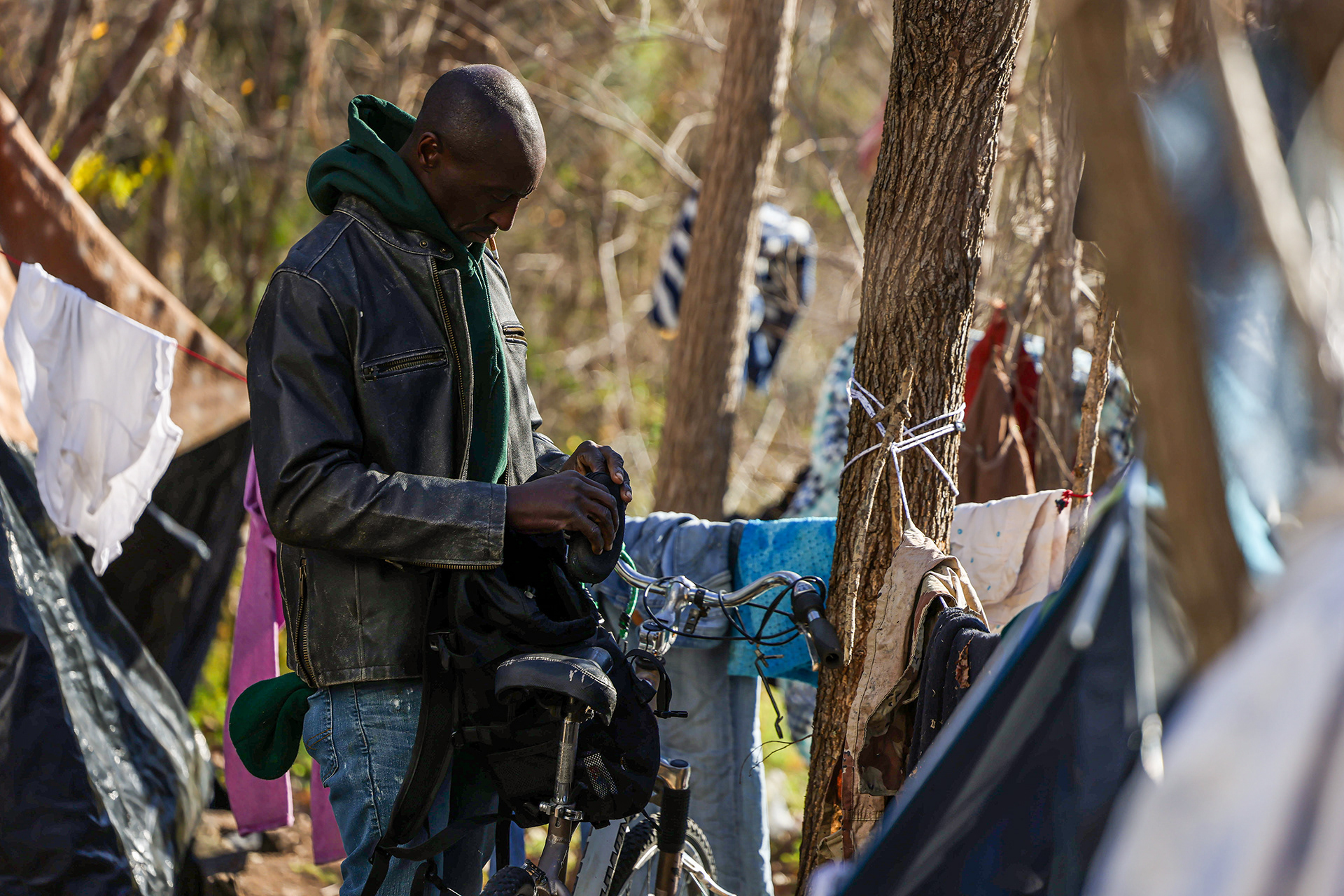

Glen Haines gets his blood pressure monitored by street medicine team leader Joel Hunt during a patient visit at a Shell Gas Station in Fort Worth on Tuesday, Jan. 9, 2023. Haines, 50, met Hunt in 2010 when he expressed concern for a bad cough and have been in touch frequently ever since. Recently, Haines had emergency surgery to remove blood clots in his left lung and went into cardiac arrest during the operation. Without Hunt and his team, Haines said he wouldn’t be here today.
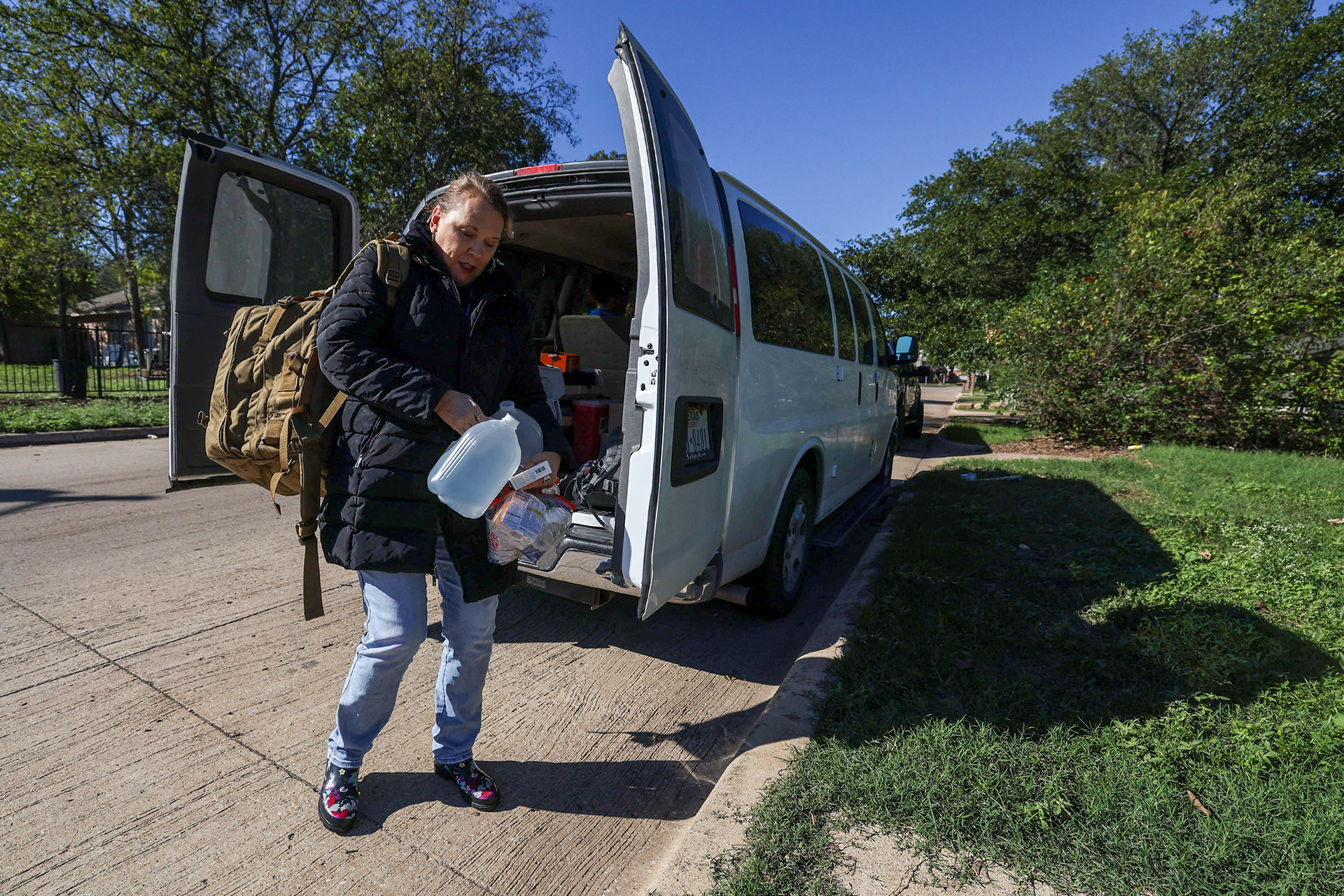
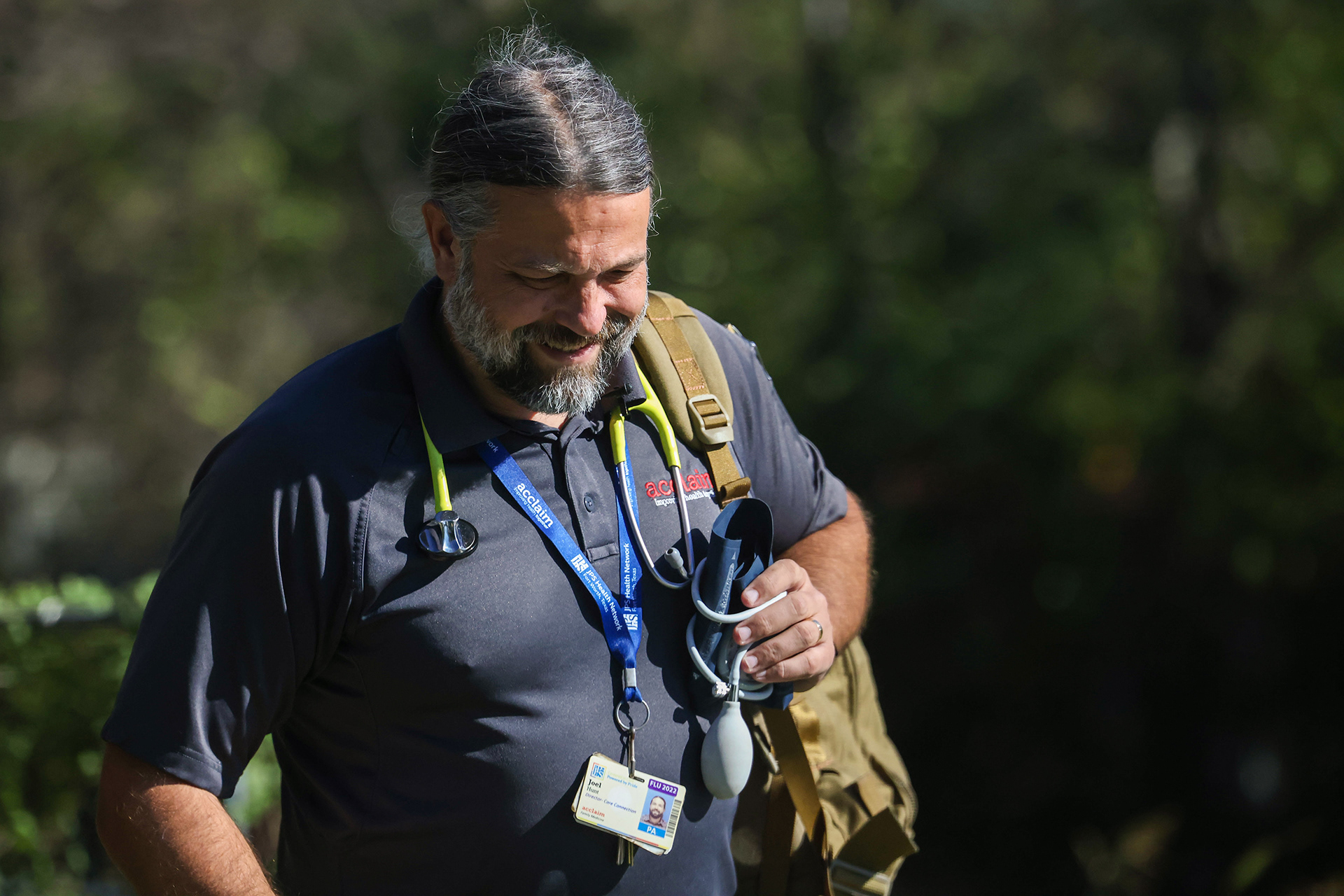
Ace Diamond becomes emotional after talking about her traumatic life experiences to the street medicine team during their visit at an old drive in movie theater in Fort Worth on Tuesday, Jan. 9, 2023. Last year, Ace’s beloved puppy, Tiberius, died from an infection and wants to make sure Glenwood doesn’t experience the same fate. She also recently found a friend of hers, also unhoused, who had died.
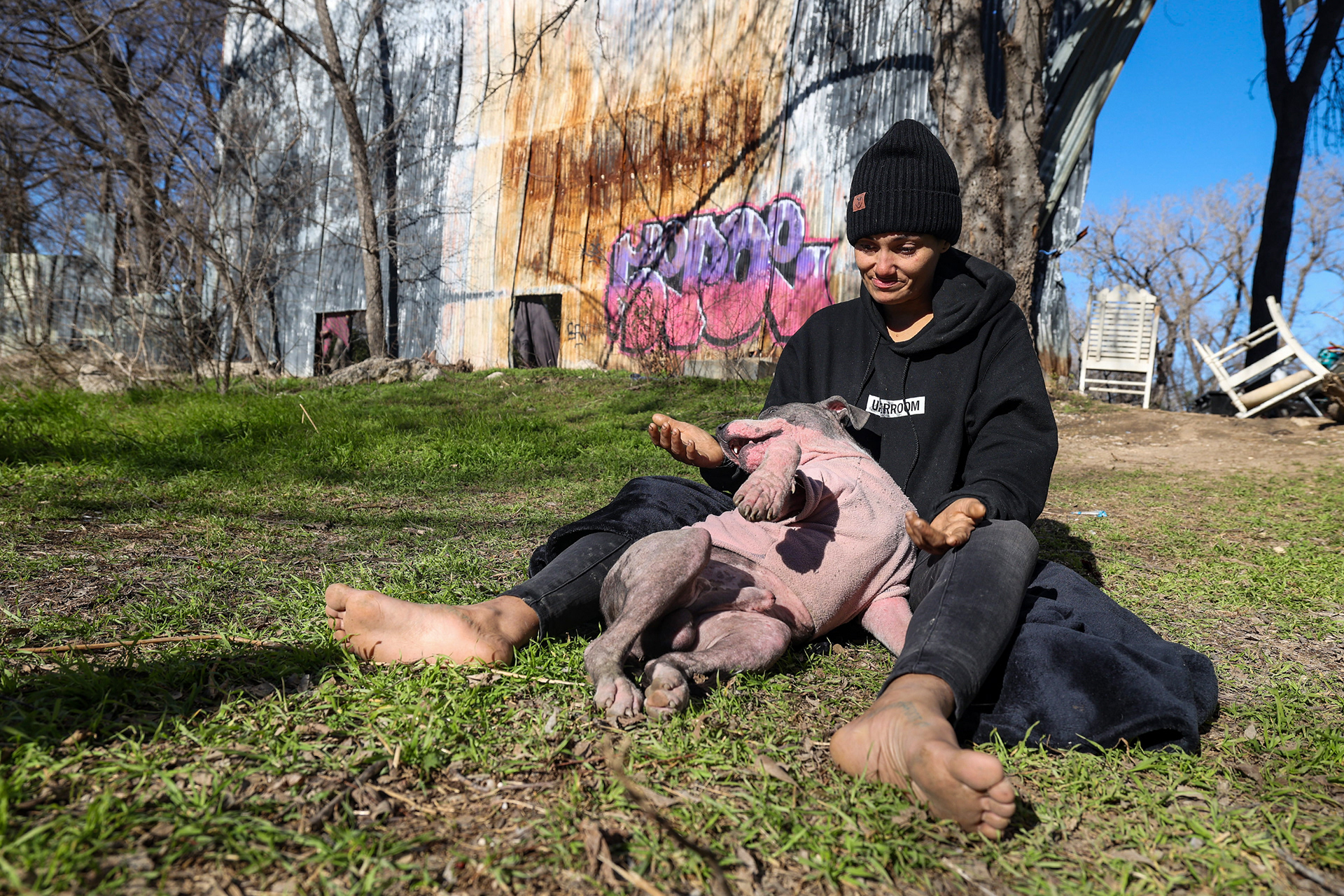

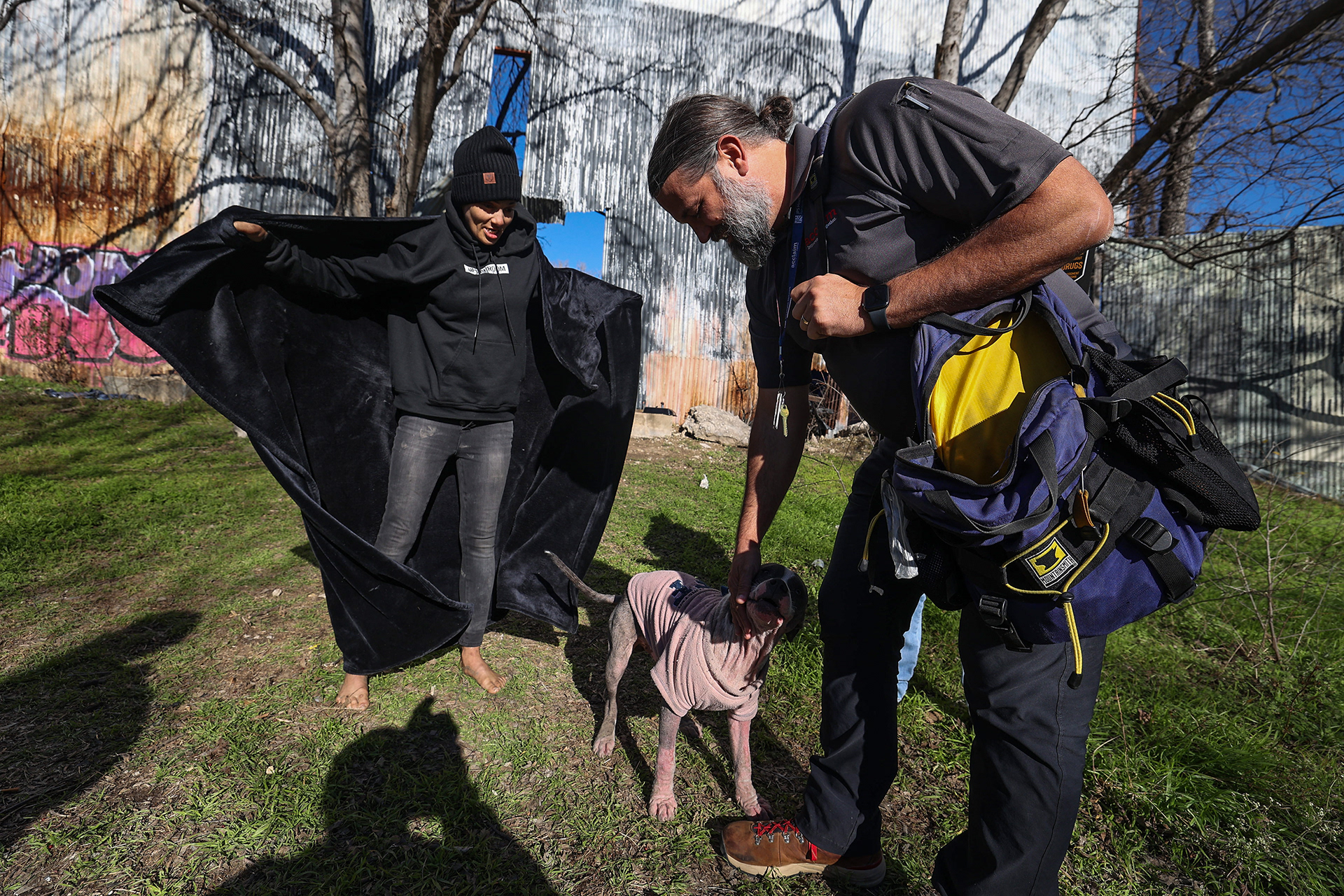
Glen Haines gets his blood pressure monitored by street medicine team leader Joel Hunt during a patient visit at a Shell Gas Station in Fort Worth on Tuesday, Jan. 9, 2023. Haines, 50, met Hunt in 2010 when he expressed concern for a bad cough and have been in touch frequently ever since. Recently, Haines had emergency surgery to remove blood clots in his left lung and went into cardiac arrest during the operation. Without Hunt and his team, Haines said he wouldn’t be here today.
Glen Haines gets his blood pressure monitored by street medicine team leader Joel Hunt during a patient visit at a Shell Gas Station in Fort Worth on Tuesday, Jan. 9, 2023.